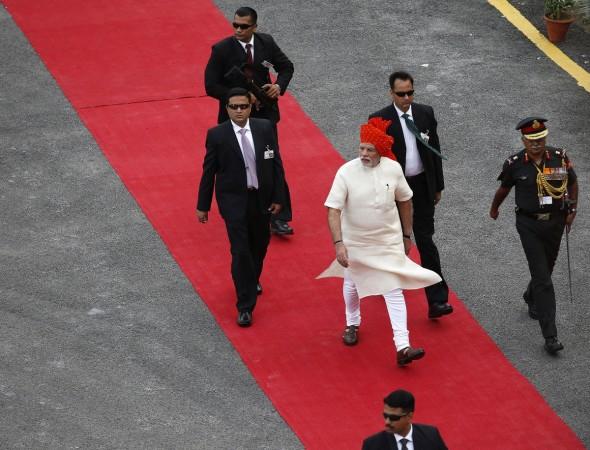
Prime Minister Narendra Modi officially launched the government's mega financial inclusion programme, termed Pradhan Mantri Jan Dhan Yojana, by opening 1.5 crore bank accounts on Thursday .
Modi stated that the scheme will help get rid of financial untouchability in the country. The project aims at ensuring a bank account for every household.
As part of the initiative, bank accounts and RuPay debit cards - with inbuilt insurance cover of Rs 1 lakh - will be provided to crores of Indians, who had no access to formal banking facilities till now.
By 2018, the scheme aims to provide two accounts to 7.5 crore identified households.
In his address during the launch, the PM stressed that it is a milestone moment in the history of the banking, as well as the insurance sector. Modi pointed out that there has never been an incident in the past which saw the account opening and accidental insurance of 1.5 crore people in a single day, according to Zee News.
However, skeptics are of the opinion that the bank-accounts-for-all project is a huge challenge.
Under the Jan Dhan Yojana scheme, account holders will also get an overdraft facility of up to Rs 5,000.
Puneet Chopra, associate director at financial inclusion consulting firm MicroSave, told Reuters that this could become a handicap for the ambitious project.
In Chopra's opinion, Modi's plan to provide an overdraft facility could lead to bad loans as there is no plan in the scheme to collect debts.
"Without addressing the specific needs of the segment you are targeting, you cannot hope to have much success. If there is no mechanism on the ground to collect repayments or to service the accounts, these are likely to turn dormant as soon as the overdraft is disbursed," he stated.
There is a high risk that the scheme could lead to a massive dole out of subsidies, instead of assisting the targeted distribution of benefits, Chopra added.
There is also the issue of lack of identity documents. To open a bank account, one needs documents from birth certificates to residence proofs, which many poor Indians do not possess.
"For the common man, the opening of a bank account is a Herculean task," BBC quoted NSN Reddy, chief manager of the state-run Andhra Bank.
Meanwhile, it is believed that the opening of bank accounts would enable the government to eventually introduce direct cash transfers of social welfare benefits to the poor. Analysts believe that the shift to cash payments will help India to bring down its increasing fiscal deficit.
"This is a critical step towards using cash transfers for the poor as means of delivering poverty alleviation benefits and subsidies," Jahangir Aziz, chief Asia economist at JPMorgan, told Financial Times.
"The urgency and speed with which this is being rolled out is because this is the easiest way of reducing subsidies without running into political opposition."

















